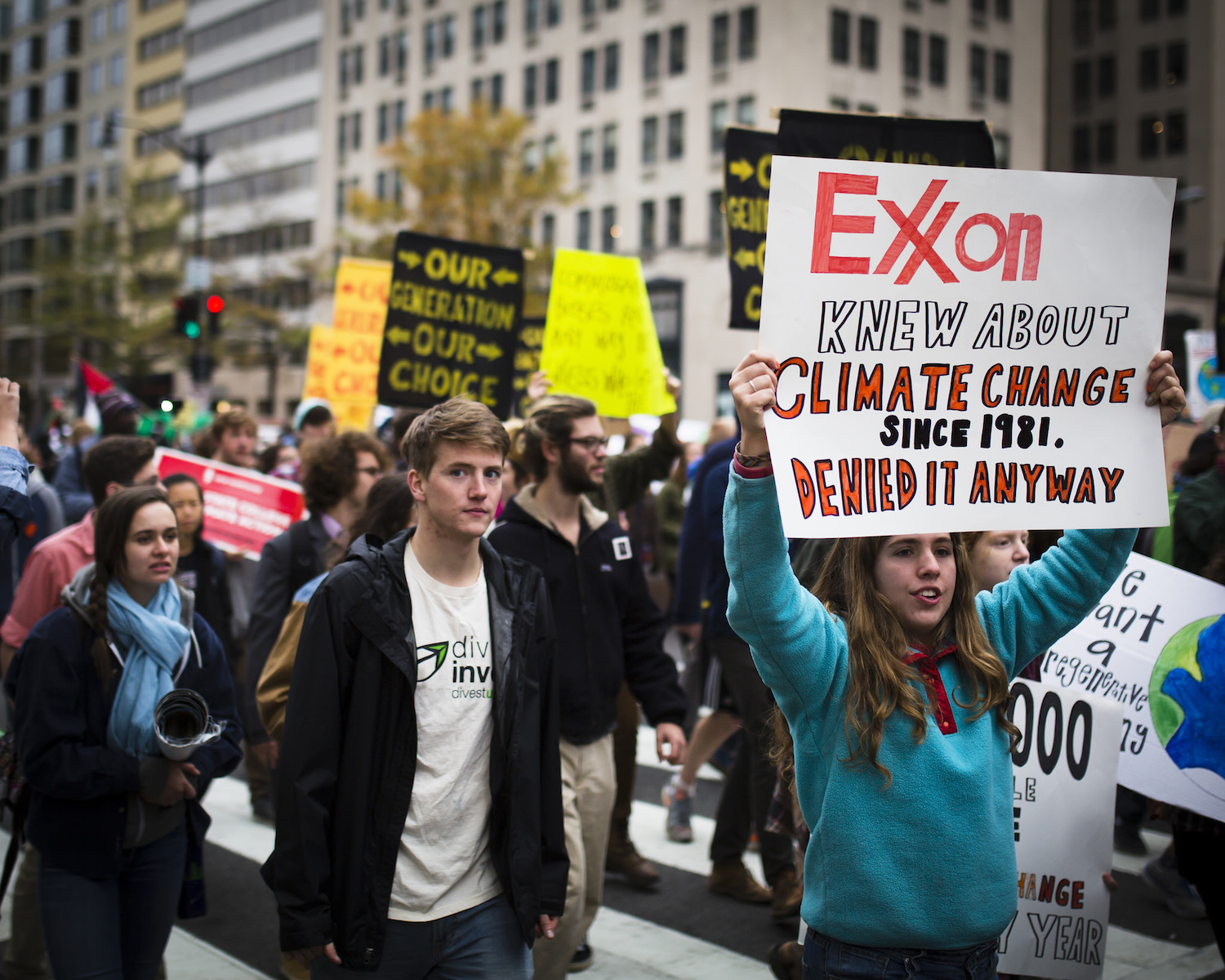This is a guest post by ClimateDenierRoundup.
On last Thursday evening, Bloomberg reported that Massachusetts Attorney General Maura Healey is proceeding with the state’s case against ExxonMobil for “engaging in unfair or deceptive acts or practices” in its efforts to cast doubt on climate science.
ExxonMobil brass may be particularly annoyed by the notification that Massachusetts is moving forward. This Wednesday, the oil giant will appear in a New York court for that state’s case against it. As E&E explains in an (unpaywalled) story, the New York case revolves around the company’s use of two sets of “proxy costs” to gauge how much of a hit the company would take from climate policies.
One set of books assumed an $80 per ton price on carbon in developed countries by 2040, whereas the other only assumed a $40 charge per ton. In one set, the $80 price was presented to investors to show the company would survive climate action even at a high carbon price, while the other, lower $40 set was used internally for decision-making. But when that higher price was used to consider the appropriateness of certain investments, per the New York State memorandum, “the results were disastrous.”
That’s pretty complicated stuff, but the Massachusetts case will likely be more straightforward. It will address how ExxonMobil internally understood that its product caused climate change, but externally funded groups to cast doubt on that scientifically robust conclusion. The case is likely to drag on for years, and even its eventual resolution isn’t going to undo the damage ExxonMobil-funded propaganda has done.
Fortunately, a new report released today offers guidance on that front, walking through what Exxon knew, what it did, and most importantly, what we can do about it. Combining the research of Naomi Oreskes and Geoffrey Supran (and others) on Exxon’s history, Ed Maibach’s understanding of how their efforts shaped public opinion, and John Cook and Stephan Lewandowsky’s expertise on rebutting misinformation, the report is short but densely packed.
By annotating internal memos and external advertorials, the report shows how to break down the misleading arguments deniers make, and exposes how climate contrarianism even contradicts itself. For example: deniers will say that extreme weather isn’t related to climate change, but also that a heavy snow disproves it. Or that carbon dioxide is a vital source of plant food, but at the same time claim that as such a small proportion of the atmosphere, it can’t have any big effect.
The report also lays out the five main techniques of deniers, using the mnemonic FLICC: employing Fake experts generate false balance; using Logical fallacies in their arguments, setting up Impossible expectations and claiming climate science is debunked when they can’t be met; Cherry picking data to make claims that are obviously wrong when all the information is available; and finally, employing Conspiracy theories to explain away anything that can’t be addressed by the other four tactics.
By exposing these techniques, and diagramming denial arguments to break out where logical fallacies like jumping to conclusions are employed, the report offers an easy guide anyone can follow to debunk denial.
Sadly, this will remain an important issue even if ExxonMobil is held accountable for the denial it’s funded. The fossil fuel industry is hardly the only one that uses these tactics to defend itself: Coca-Cola has funded obesity research to try and reposition that problem as one of a lack of exercise instead of sugary drinks, the NFL has run the denial playbook on concussions, and while it’s hardly the force it once was, creationism wouldn’t exist without FLICC tactics.
So give the report a read, and then go out and find ways you, too, can FLICC off deniers!
Main image: Exxon Knew Credit: Johnny Silvercloud, CC BY–SA 2.0
Subscribe to our newsletter
Stay up to date with DeSmog news and alerts






